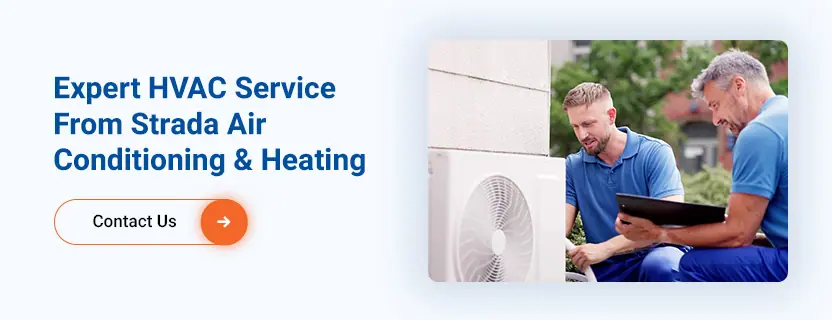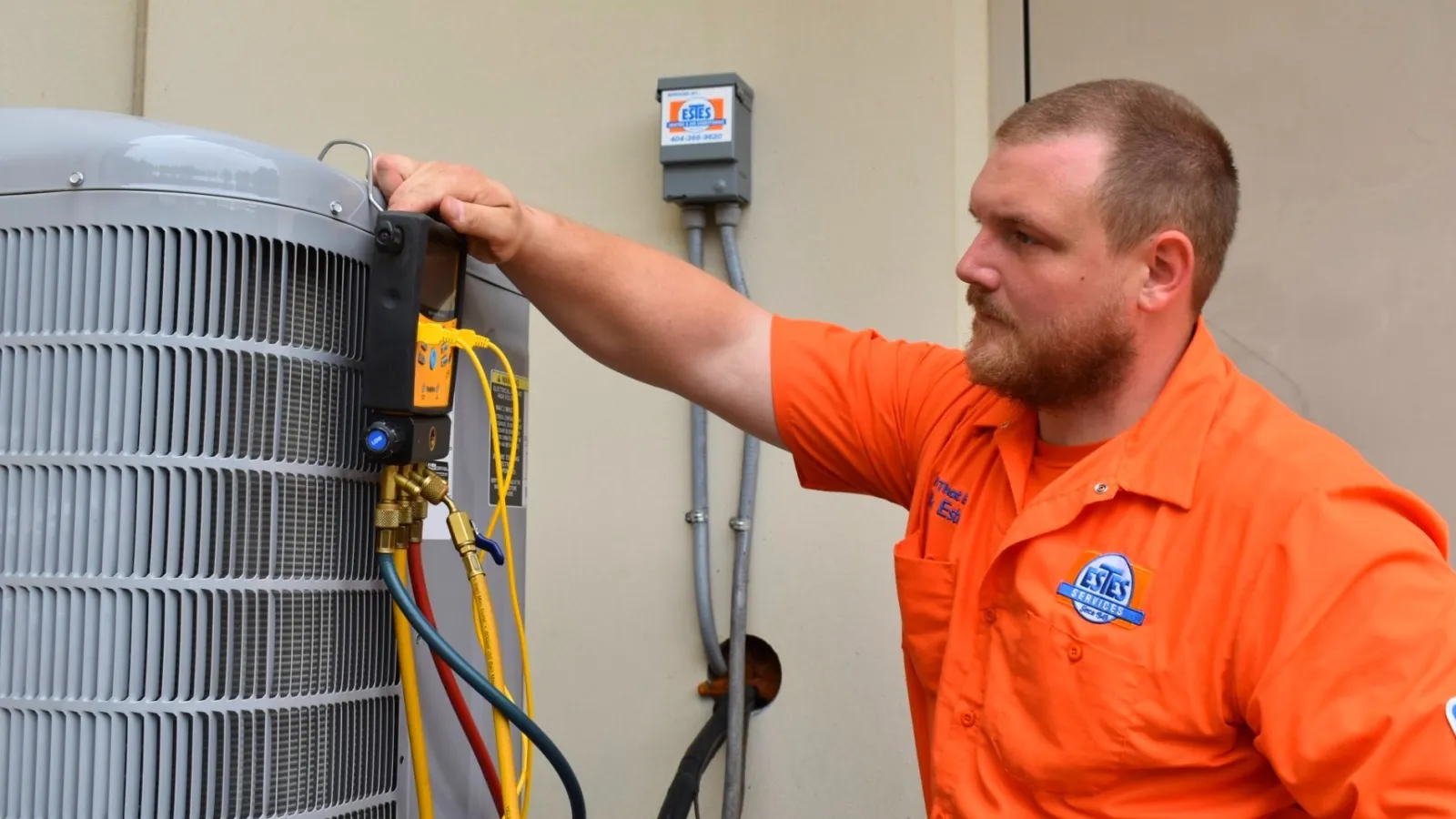The Importance of Cooling And Heating Installment: Trick Considerations for a Comfy Indoor Setting
The installment of a cooling and heating system is a vital part in achieving an energy-efficient and comfy interior setting. However, the procedure entails several nuanced factors to consider that exceed simply choosing an unit off the shelf. Factors such as the viability of the system for details building demands, correct sizing to prevent inefficiencies, and the knowledge of service providers for a top quality installation play essential roles. The adoption of advanced technologies can significantly enhance system performance. Comprehending these complexities is simply the start of ensuring optimal indoor convenience. What are the essential aspects that dictate successful a/c implementation?
Selecting the Right System

When choosing a heating and cooling system, it is critical to evaluate the capacity required to properly warm or cool the room without overworking the system, which can result in boosted wear and operational prices. Consulting with a specialist heating and cooling specialist can offer valuable understandings into picking a system that aligns with both the building style and the anticipated usage patterns of the structure.
Additionally, taking into consideration the integration of wise innovation can boost system management and surveillance, offering better control and possible cost savings. By diligently assessing these aspects, one can guarantee the selection of a cooling and heating system that not only fulfills prompt needs however also adds to lasting operational sustainability and passenger convenience.
Comprehending Power Performance
Understanding energy effectiveness is necessary when thinking about a HVAC setup, as it directly impacts both the environmental impact and the functional prices of the system. The performance of an A/c system is typically suggested by rankings such as SEER (Seasonal Power Efficiency Proportion) for air conditioners or AFUE (Yearly Gas Utilization Effectiveness) for heaters.

Spending in an energy-efficient HVAC system not just translates to cost financial savings but likewise contributes positively to environmental conservation by lowering greenhouse gas exhausts. Furthermore, many territories supply incentives or discounts for the installation of high-efficiency systems, better enhancing their financial appeal.
When reviewing power efficiency, consider innovative functions such as variable speed electric motors, clever thermostats, and zoning capabilities. These developments boost the system's capability to adapt to differing need, thereby enhancing power usage. It is crucial to talk to a/c experts who can supply insights into the very best alternatives tailored to certain environment problems and usage patterns, guaranteeing maximum effectiveness and convenience.
Relevance of Appropriate Sizing

On the other hand, an undersized a/c system will certainly battle to get to the desired temperature level, specifically throughout severe climate problems. This can lead to constant operation, leading to greater power prices and potential getting too hot of system elements. Additionally, inadequate sizing can result in irregular temperature circulation, creating certain areas of a structure to be as well cool or too cozy.
To attain the correct sizing, an extensive tons computation is essential. This entails assessing different elements such as the building's square footage, insulation degrees, home window types, and neighborhood climate conditions. By accurately figuring out the home look at here heating and cooling needs of a room, heating and cooling professionals can recommend systems that guarantee effective operation, reduced energy consumption, and enhanced interior convenience.

Guaranteeing Quality Setup
A seamless Cooling and heating installation is the cornerstone of a system's longevity and performance. This professional need to have in-depth knowledge of diverse systems and be experienced at evaluating the specific demands of the structure.
Correct installment exceeds simple placement of equipment. It includes accurate calibration to make certain ideal air movement, efficient energy consumption, and uniform temperature circulation. This consists of precise ductwork installation, making sure connections are leak-free and safe, which is critical for preserving system effectiveness and indoor air quality.
In addition, the application of innovative diagnostic devices throughout installment can find prospective concerns early, avoiding costly repair work and extending the lifespan of the system. The specialist should also guarantee that all parts work and that the system conforms with local building regulations and policies.
Routine Maintenance Practices
As soon as the foundation for a high-performing HVAC system is established through top quality setup, the focus needs to change to normal upkeep techniques to make sure continued efficiency and integrity. Routine maintenance not just prolongs the lifespan of the system yet also improves indoor air top quality, reduces power consumption, and protects against expensive fixings. Important maintenance jobs include frequently transforming air filters, cleaning up evaporator and condenser coils, and evaluating the system for blockages or leaks.
This basic task can significantly boost air circulation and system efficiency. Additionally, specialist technicians need to examine the system annually, examining for cooling agent degrees, electric links, and overall system performance.
Attention to ductwork is also vital; sealing and cleaning ducts regularly prevents air loss and contamination. Carrying out a maintenance routine makes certain that minor concerns are attended to before they escalate, protecting the system's functional integrity. By sticking to these upkeep practices, home owners can optimize their a/c system's capability and maintain a comfortable indoor environment year-round.
Conclusion
By selecting an appropriate system tailored to particular building requirements, recognizing energy performance, and making certain proper sizing, inadequacies can be lessened. The involvement of proficient specialists assurances high article quality setup, while the combination of sophisticated modern technologies boosts system performance and surveillance.
Several types of HVAC systems are available, consisting of split systems, hybrid systems, duct-free systems, and packaged heating and air systems, each with distinct advantages and limitations.
Recognizing energy effectiveness is necessary when considering an A/c installment, as it straight impacts both the ecological footprint and the operational costs of the system. The efficiency of a Cooling and heating system is typically suggested by ratings such as SEER (Seasonal Power Performance Proportion) for air conditioners or AFUE (Annual Gas Use Performance) for heating systems (lawn irrigation installation Brownwood TX).When the home heater foundation for a high-performing Cooling and heating system is established via high quality setup, the emphasis must change to normal upkeep techniques to make sure ongoing effectiveness and integrity. Additionally, professional technicians should examine the system every year, examining for refrigerant levels, electric connections, and overall system efficiency